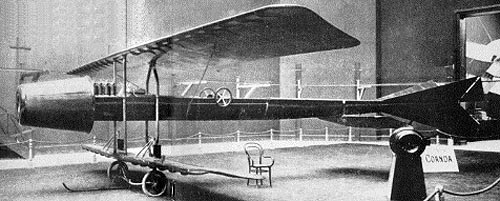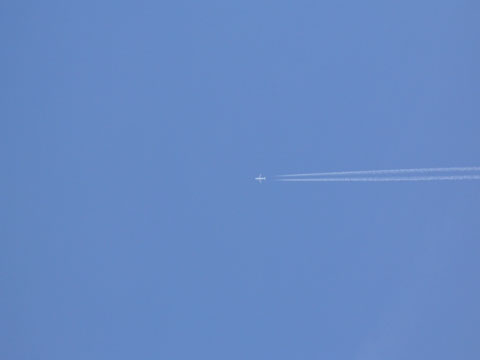Holger Afflerbach and David Stevenson, eds. An Improbable War? The Outbreak of World War I and European Political Culture before 1914. New York and Oxford: Berghahn Books, 2007. Sometimes the origin of the First World War seems overdetermined, there are so many theories to account for it. Other times, it seems like, as in the title of this book, an improbable war. Eighteen chapters examine the question from the point of view of the arms races, public opinion, socialism, culture, the non-European powers, and so on.
Scott Anthony and Oliver Green. British Aviation Posters: Art, Design and Flight. Farnham and Burlington: Lund Humphries, 2012. Who doesn’t like aviation posters? Chances are, if you’re a reader of this blog, not you. This book draws upon the collection of British Airways, but is mostly concerned with its predecessors, Imperial, BOAC and BEA. While there are are occasional excursions into related topics, the content is narrower than the title might suggest: there’s next to no military content at all, and not much from manufacturers or other parts of the civil aviation industry. Still, a beautiful book.
Martin van Creveld. Wargames: From Gladiators to Gigabytes. Oxford: Oxford University Press, 2013. Van Creveld takes a narrow definition of ‘war’, excluding economic and political simulations (though he would presumably concede that these are essential parts of warfare at the grand strategic level), but a broad definition of games, including things like gladiatorial combat, medieval tournaments, and duels. He also takes a narrow view of women and their role in anything relating to war, and a broad view of relevance and sometimes logic (‘Italy, the land where dueling had been invented, was a special case, part European, part African (as adherents of the Lombard League argue to this day)’, 131 — what does this even mean?) Still, it’s potentially useful to look at the history of the subject beyond hexes and miniatures.
Colin Cruddas. 100 Years of Advertising in British Aviation. Stroud: History Press, 2008. Complements British Aviation Posters nicely, being much more interested in the companies outside the BA lineage, including aircraft and some component manufacturers, as well as military aviation. It focuses more on print advertising rather than posters, too. On the other hand, the text is more of a gloss than a sustained narrative, and the reproductions less generous (smaller, also less colourful, though that may be because the originals were monochrome), though still perfectly adequate for research purposes.
Robert S. Ehlers, Jr. Targeting the Third Reich: Air Intelligence and the Allied Bombing Campaigns. Lawrence: University Press of Kansas, 2009. As is well known, early in the war Bomber Command thought it was doing reasonably well in terms of accuracy and effectiveness in bombing Germany, but was really not. But what of later in the war, and what of the Americans? This should have the answers.
Philip Sabin. Simulating War: Studying Conflict through Simulation Games. London and New York: Bloomsbury, 2012. Unlike van Creveld’s book, Sabin’s interest is squarely on wargames in the usual sense (though perhaps a slightly old-fashioned sense now, given that they are primarily intended to be played on tabletops rather than desktops). Also, it’s not a history of wargaming, but an analysis of how wargames can be used to aid history students in understanding how wars are fought — not only through playing them, but in designing them, as his own students do. As I’m entirely in sympathy with this idea and would to one day use wargames in my own teaching, I’m keen to read this. And maybe even play some of the eight games included with the book — two of which are on air warfare, Big Week and Angels One Five.
![]() This work is licensed under a Creative Commons Attribution-NonCommercial-NoDerivatives 4.0 International License.
Permissions beyond the scope of this license may be available at http://airminded.org/copyright/.
This work is licensed under a Creative Commons Attribution-NonCommercial-NoDerivatives 4.0 International License.
Permissions beyond the scope of this license may be available at http://airminded.org/copyright/.





I think the Lombard comment is in reference to the present separatist Northern League in Italy, which AIUI combines disdain for indolent Southern Italian types with unpleasant racial politics.
I found a copy of the book to flip through over my lunch break, and thankfully van Creveld’s editors seem to have contained his wildest excesses, though he still rides his hobby-horses occasionally. It looked to me to be very much a work of synthesis, though as you note perhaps broader in scope than a lot of the existing literature, but I suspect you’ll find the Sabin more interesting.
Sure, I got that much. But what I mean is (apart from the question of why you’d want to approvingly quote such a political group in an academic work) what does it have to do with duelling? He goes on to say that there were many more duels in Italy than any other European country, but that the death rate was low, so ‘As one historian says, perhaps Italians preferred the show to the reality behind it.’ He then moves on to France. So what does it mean to say that Italy was ‘part European, part African’? Are Africans more violent than Europeans, or more cowardly, or just more in love with spectacle than sober, realistic Europeans? At best it’s confusing, at worst highly dubious.
This is the first book I’ve read of van Creveld’s (though I own The Age of Airpower); if his excesses have been curbed then I’m not keen to remedy this. To take another example of one of his asides or non sequiturs, in this case with nothing to do with race or gender, when he discusses how Reisswitz came up with something like a combat results table for his wargame and so ‘left out the actual fighting, which is too complex to be understood by simple causation. To compensate for this fact it relied on statistics — just as quantum mechanics would do in respect to physics a hundred years later’ (150). Again, the reference to quantum mechanics is irrelevant, since he makes nothing of this supposed similarity. But worse, he’s got it completely backwards. Unless he believes in hidden variables or some other non-standard interpretation of quantum mechanics, the randomness in quantum mechanics is inherent, not a statistical abstraction of underlying processes and events. Kinetic theory of gases, sure, quantum mechanics, no. There’s too much of this sort of thing going on, though not enough to undermine the overall value of the book.
As I said on twitter, I think this is a case of the Brain Eater; his early books on logistics in war and command in war are pretty highly regarded, as is his book on German/US fighting power in the Second World War (though the conclusions are still disputed). I’ve also got his book on technology and war, which I remember being a useful survey, and his ‘The Transformation of War’, which I’ve heard mixed things about – I’ve had it for years, but have not yet got round to reading it.
I think the kind of broad surveys across hundreds or thousands of years, of which he’s written quite a few, are both very useful as overviews of the subject, and perhaps more prone to the kinds of digressions that appear in his more recent books. He seems to be a man of trenchant opinions, but from what I’ve gathered they were more under control until about 2000. I’d be interested as to what you make of the air power book – I gather it ruffled more than a few feathers.
There’s certainly a lot of fascinating material which I hadn’t come across; I’ve just read the section on the US Navy’s Global War Games held from 1979, for example, which were huge affairs simulating US-USSR conflicts (up until the end of the Cold War, anyway). So it’s useful. As you say, broad surveys are probably more prone to van Creveldian digressions; but it’s probably also more of a worry if his biases are distorting his reading, in that it’s one thing for an expert in a particularly topic to have hobby horses, in fact it’s probably a good thing; it’s another for somebody to do a crash course in a field not their own without a bit of humility. Informed prejudice beats ill-informed prejudice, I guess.
LOOK! Picture books! (Don’t you get your History Qals taken if you use picture books?) Pity you’re not in Melb, I’d love to see those poster books.
JDK: not if you say you’re studying visual culture! In fact, I’ve seen at least one PhD purely on (UK Second World War propaganda) posters; I must admit though, I looked at it mainly for the pictures…
JDK:
I’m reasonably certain that you would like them!
Thanks to Brett kindly lugging hardbacks interstate, I’ve now had a good gander at both British Aviation Posters: Art, Design and Flight and 100 Years of Advertising in British Aviation and I can confirm I am rushing to my favourite bookseller to order a copy of the latter, post haste. The former is also great, but overlaps to a large degree with books I already have. So – recommended.